SUMMARY
This is AI generated summarization, which may have errors. For context, always refer to the full article.
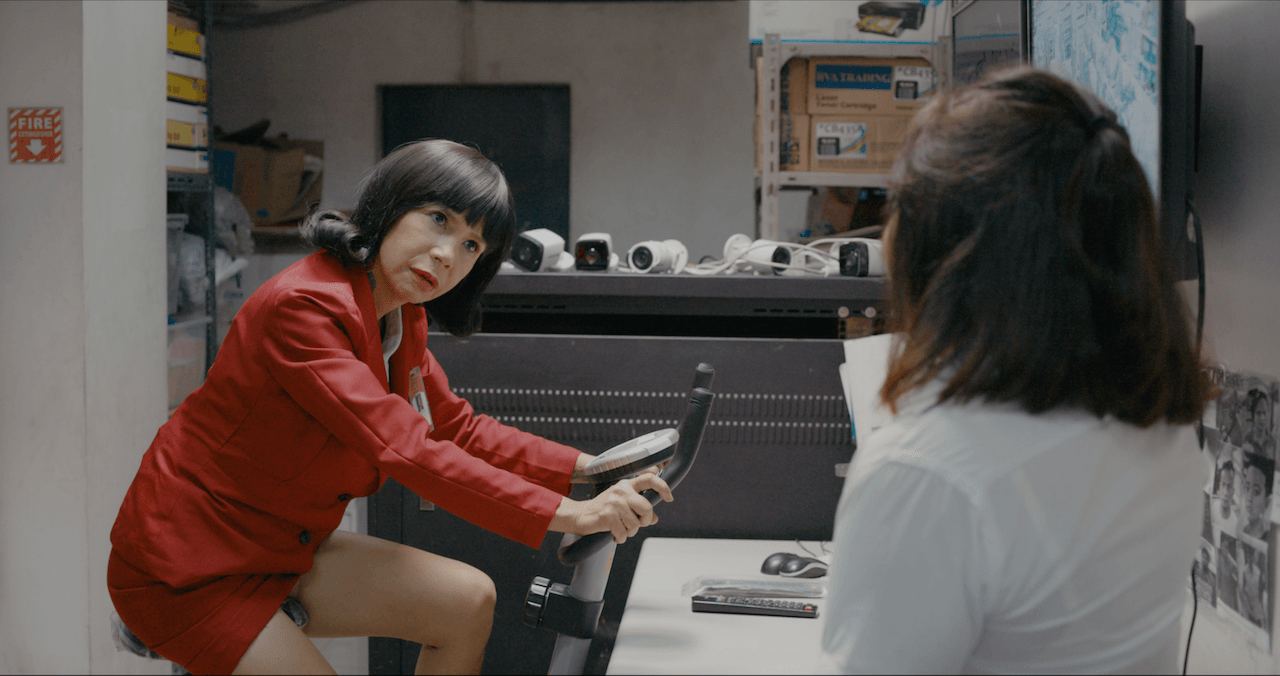
Short films are the format of today. They have been around since the dawn of filmmaking itself, but are treated as a stepping stone rather than a destination, even within film schools.
But some stories are meant for brief running times. It’s also often forgotten that the artform allows filmmakers to forge their creative identity and audiences to discover up-and-coming talents.
Digital filmmaking and democratized distribution schemes have lowered the barrier of entry for filmmakers. However, mainstream coverage and criticism largely forgets to write about short films.
Film festivals last year have provided access to these shorts enabling more people to see them, especially shorts debuting in regional festivals. This is an attempt at encouraging people to start talking about short films more.
Here are some of excellent releases in 2019 that, thankfully, got more love in 2020:
Excuse Me Miss, Miss, Miss (2019; dir. Sonny Calvento)
Before Excuse Me Miss, Miss Miss made waves as the first Filipino short film at the Sundance Film Festival, the film had its roots in the QCinema International Film Festival. Longtime collaborators Arden Rod Condez, Sheron Dayoc, and Sonny Calvento obtained a short film grant from the festival to start the project, which later won the Audience Choice Award in the QCShorts Competition.
The film begins with the jingle for Trendysitas — a fictional department store (based on Tiendesitas) whose jingle is a parody of the SM Department Store theme song. Saleslady Vangie (Phyllis Grande) stares into space as she is hounded by a customer’s voice saying “Excuse me, miss? Miss? Miss?” When she fails to satisfy, her boss (Mailes Kanapi) brings up her countless missteps and tells her that she is fired, with only a few days’ leeway.
Hoping for a second shot, Vanjie visits her boss’ home only to find out that there are three other doppelgangers that help her fulfill her day-to-day tasks. Phyllis Grande’s dry humor and deadpan demeanor, almost embodying a child unwilling to participate in a grown-up world, is perfectly countered by Mailes Kanapi, whose larger-than-life personality, 60s haircut, and bright-red power dress immediately sets her apart as the superior.
It is a film that invites the audience to laugh along and laugh at the film and its protagonist. But what begins as a campy retail store sketch quickly evolves into an idiosyncratic (and at times depressing) satire of the hellhole that is contractualization in the Philippines. Excuse Me Miss, Miss Miss expands on the demand of capitalism on the blue-collared workers, removes the facade of work-life balance afforded only by the privileged, and becomes a biting critique on the transactional nature of life, which turns us all into static products rather than people.

Gulis (2019; dir. Kyle Jumayne Francisco
We begin Gulis with pale hues and distance.
Andrei (Jal Galang) receives a package in the morning, and the weight is revealed by the time it takes him to bring it inside their home. As a way of diverting the attention of his father (Menggie Cobarrubias), he offers to clean the dishes. Later, we see a test kit, blood on his finger, and hear the word “fuck” — which tells us all we need to know.
Cleaning becomes a manifestation of the desire to “come clean” about his status, to remove the stigma of being “dirty” that is incorrectly associated with being HIV+, and to alleviate himself from the suffocating anxiety that comes with the uncertainty. Gulis captures the burden of this uncertainty, even if Andrei is a trained nurse and educator — shown through quick shots of his mantle of nursing books and certificates. Results like this are often treated cinematically like death sentences but, as the film shows, they don’t have to be.
As the initial distance between father and son is closed, the film takes on a yellow color: only used earlier in the film during a flashback showing Andrei’s mother (Cindy Lapid). As the camera zooms in on Andrei, we see him confront the information and his emotions, the dam threatening to break. But the act of sharing a meal reminds us that burdens can be shared too. Yellow becomes a sign of warmth and hope and that reminder can be through the simple act of putting rice on someone’s plate and telling them that things will be okay.
Beginning Cinespectra Short Film Festival and making waves in several local film festivals (such as Cinemalaya) and international film festivals thereafter, Gulis is proof that the cinematic experience can create advocates through storytelling without losing narrative simplicity and emotional complexity. In less than ten minutes, Kyle Jumayne Francisco closes the gap between generations by providing a universe wherein old wounds can heal without leaving scars.

OctoGod (2019; dir. Shievar Olegario)
Shievar Olegario’s Octogod began its festival journey at the Ngilngig Asian Fantastic Film Festival — a Davao-based film festival that focuses on films that embody the ambiguities of the word “ngilngig,” a Bisaya expression that refers to everything from the fantastical to the horrific. Last year’s Cinemalaya allowed excellent short films from the regions to make their way to new audiences around the Philippines through its online streaming platform. Octogod is one of them.
The mythical and the digital collide in this psychedelic Lovecraftian creation. The film follows an unnamed graphic designer (Shievar Olegario) who steals and transforms online identities and images for his own personal gain and validation. After he posts them on his website, body horror abruptly takes shape and body dysmorphia (or is it divine intervention?) transmogrifies the obsessed artist through Photoshop. The aftermath is a disorienting synesthetic experience that punishes the artist and the audience guilty of objectifying the men and turning them into deities.
It forces the viewers, who share in this body dysmorphia, to collapse unto themselves into a single digitized datapoint. The heavy and fast-paced electronic beat disappears just as quickly as it arrives, while the plethora of visual styles — ranging from rapid cuts, colors experiments, and even scaffolds of multimedia designs that appear as doorways into unknown dimensions— instill a constant sense of dread for they do not allow enough time to process what we see before us. The effect is an audiovisual landscape that toys with our minds through its manipulation of time, space, and perception.
Atop this towering experimental arthouse horror is Shievar Olegario — who debuts as a one-man Cthuthlu through his work not only as the film’s protagonist but also a(n almost) one-man production team. In taking on these Herculean tasks, he proves that there are plenty of ways to terrify the audience without the blood and gore. That alone should keep us up at night.

The Slums (2019; dir. Jan Andrei Cobey)
“Yung pinapakita nila doon…hindi naman tayo yun! Hindi natin buhay yun!”
The Slums follows a family of 5 being terrorized by a documentary filmmaking crew hellbent on making the family conform to marketable narratives of poverty. Excitement over beauty pageants, messages of hope, and stories of normalcy in the slums are diluted purposefully through The Office-style camera work. In one scene, the crew intervenes and forces the family to perform poverty as seen in media: exchanging their food for scraps, removing their furniture, and culminating in a pose-off referencing The Last Supper. Self-aware in its aggressiveness and wildly intelligent without losing heart, writer-director Jan Andrei Cobey creates an atmosphere of dry, self-effacing humor intertwined with lasting socio-political critique.
While the mockumentary stands on its own, it’s the director’s subtitles that takes the cake: adding a layer of deliciously malicious comedy by depicting the intent of the fictional filmmakers outrightly. The dissonance between the image and subtitles is a message to the literate and educated — announcing that, in their spectatorship, they are complicit to these depictions of the disenfranchised. By the end, the film proffers up an alternative to poverty porn: to let these individuals tell their story and to provide them with the means to do it.
The film began as an undergraduate thesis for the UP Film Institute, eventually making its way to the Cinema One Originals Film Festival in 2019 and Cinemalaya in 2020, among many festivals. In his acknowledgements section, Cobey writes: “May you be as impassioned to fight for the poor as much as you have laughed because of my film.” The Slums is a reminder that laughter always has a consequence and, more often than not, it is at the expense of someone else.

Tokwifi (2019; dir. Carla Pulido Ocampo)
Tokwifi tells the story of Limmayug (Kurt “Ayeo-eo” Lumbag Alalag) and his encounter with a 1950s mestiza star (Adrienne Vergara), who is trapped in a television set that crashed from the heavens. Limmayug and Laura decode each others’ messages through gestures: at times resulting in hilarious misunderstandings. Vergara, in particular, is luminous in this role as she explores subtle depths of comedy and sincerity within a single, tight frame.
There is a reason that Tokwifi has accumulated accolades and that is because of how it presents decolonized images of love. We are told that to love means to be physically involved: embraces in airports between family members, holding hands for first time lovers, and true love’s kiss for soulmates.
To the rest of the world, the absence of this physical dimension of love is absurd. But to the Bontoc Igorot, this absurdity is daily life. It opens up the audience to recognizing that love is also in sharing blankets fireside or even carrying someone away from harm. It is in these small acts of kindness, often unnoticed and unappreciated, that the film also challenges deeply embedded colonial ideas.
In a way, director Carla Pulido Ocampo places herself in the narrative as Laura — an outsider who chances upon this community and falls in love with it. Laura begins to unlearn her colonial upbringing and, in that process, the boundaries between their two worlds begins to fade away. It serves as an invitation to us audience members: to be one with our subject, one must see the world from their point of view.
In an odd way, the process of filmifying traditional folklore turns it into modern folklore itself. Like the greatest love stories of our time, it empowers us to imagine past the horizons we’ve come to know and expect. In its purest and most universal form, love always emancipates.

(Tokwifi is available for a limited time via Cinema Centenario’s online platform MOOV.)
– Rappler.com
Add a comment
How does this make you feel?

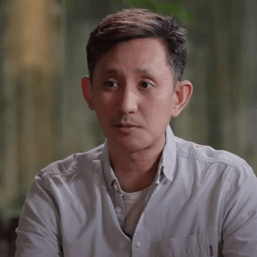
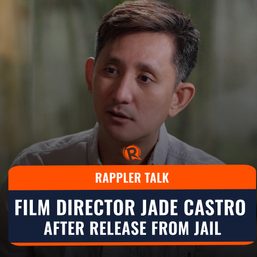


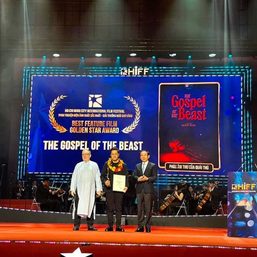


![[Only IN Hollywood] Eugene Domingo steals show at Manila International Film Festival](https://www.rappler.com/tachyon/2024/02/MIFF2024EugeneDomingoJokingkyAsksForAKissByDingdongDantesBeforeAnnouncingBestActorWinnerBySthanleeBMirador1.jpg?resize=257%2C257&crop=163px%2C0px%2C955px%2C955px)
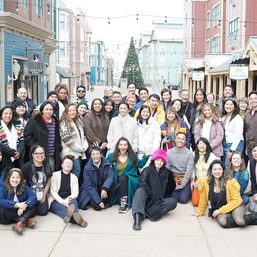
There are no comments yet. Add your comment to start the conversation.